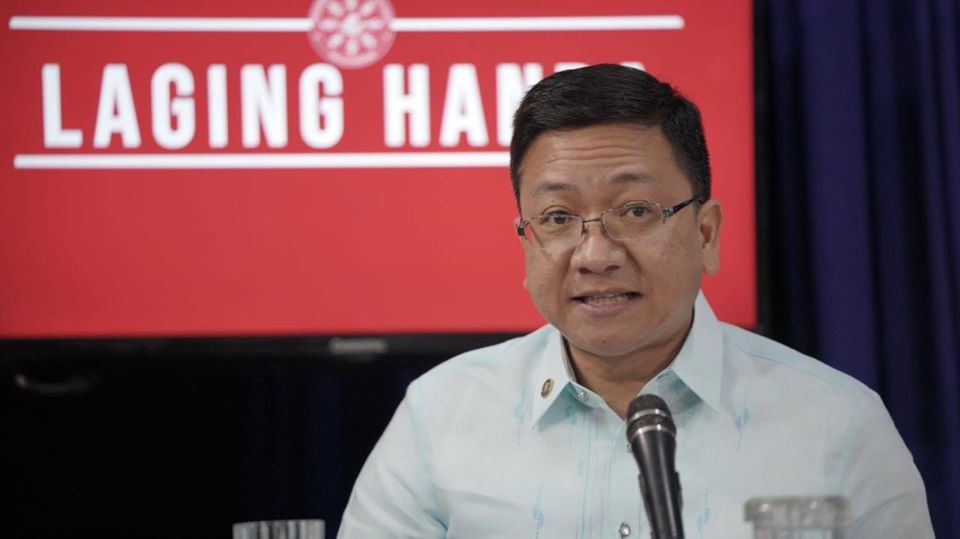NSC denies report accusing gov't of 'coordinated campaign' vs human rights defenders

The National Security Council (NSC) refuted a report by an international non-governmental organization (NGO) which accused the government of leading a “coordinated campaign” against human rights defenders to stifle dissent and freedom of expression in the country.
NSC spokesperson Asst. Director General Jonathan Malaya said the report released by Amnesty International (AI) provided a “one-sided portrayal” as it failed to account for the administration of President Marcos Jr.’s efforts to protect freedom of speech and of the press.
“We take very strong exception to the one-sided, misleading, and baseless report of Amnesty International for making rash judgments of the Marcos Jr. administration so far removed from reality. Freedom of expression in the Philippines is constitutionally-protected and we can see that in the robust and healthy traditional and social media environment where opinions are expressed freely every single day,” he said in a statement on Wednesday, Oct. 16.
“AI did not even account for the side of the Philippine government before it released its report. The National Security Council should have been given the opportunity to rebut each of their so-called findings before this was released to the public. This only fuels speculation that the report is more for propaganda purposes to vilify the state rather than an honest assessment,” he added.
The report
On Monday, Oct. 14, AI released a report which revealed that government authorities “are increasingly using Facebook in red-tagging campaigns targeting young activists, including those who investigate alleged human rights violations by the military, police and other government agencies.”
The report titled “I turned my fear into courage”: Red-tagging and state violence against young human rights defenders in the Philippines” offered an overview of how the Marcos administration “has increasingly weaponized digital tools, misinformation and vague anti-terror laws to harass, intimidate and repress young activists,” the AI said.
According to AI, young activists interviewed for its report described how they have personally suffered from being red-tagged, which has led to a climate of fear and self-censorship, or individuals giving up on their work as activists or journalists.
The practice of “red-tagging” occurs when leading political figures and state security officials vilify human rights activists and other perceived opponents of the state as alleged “Communist rebels” and “terrorists,” the NGO said.
“Activists and other critical voices are being red-tagged and identified as targets by the government, and then pursued online. However, in the Philippines, the issue does not only concern online harassment; it also results in tangible harm offline,” said Damini Satija, Director of Amnesty Tech.
NTF-ELCAC
Further, AI pointed out how the NTF-ELCAC, a government task force established in 2018 to end communist insurgency in the country, allegedly resorted to red-tagging through Facebook posts and press statements despite Marcos Jr. administration’s attempts to present itself as “more respectful of human rights.”
The NTF-ELCAC, according to AI, shares numerous posts and press statements on its Facebook page, “many of them wrongly vilifying young activists as ‘terrorists’ or falsely accusing them of being associated with armed groups.”
AI also said that the Anti-Terrorism Act (ATA) of 2020, which permits police and military personnel to detain suspects without a warrant or formal charges for up to 24 days, has “bolstered” state security forces to file “baseless complaints” against young activists and arbitrarily detain them.
But Malaya complained that AI did not take the national government’s side, raising suspicion about the true purpose of their report.
“The National Security Council should have been given the opportunity to rebut each of their so-called findings before this was released to the public. This only fuels speculation that the report is more for propaganda purposes to vilify the state rather than an honest assessment,” Malaya said.
The NSC is led by National Security Adviser (NSA) Eduardo Año, who also concurrently serves as the vice chairperson of the NTF-ELCAC. Marcos, on the other hand, is the chairperson of the anti-Red task force.
Malaya also underscored that NTF-ELCAC's online presence seeks to inform the public about the real threats posed by terrorist organizations, contrary to Al's assertion that digital tools are weaponized against activists.
On the Anti-Terrorism Act, Malaya pointed out that the AI report overlooked the law’s critical role in disrupting terrorist activities which has decreased significantly since the law's enactment. He stressed that the law is not a tool to silence activists, but a “necessary measure to protect national security.”
Nonetheless, Malaya said the NSC is willing to hold a dialogue with AI and discuss its report for a more open, constructive, fair and balanced engagement.
"Our doors are open to AI if they are open to listening to the side of government. We are willing to investigate if there is probable cause," he said.